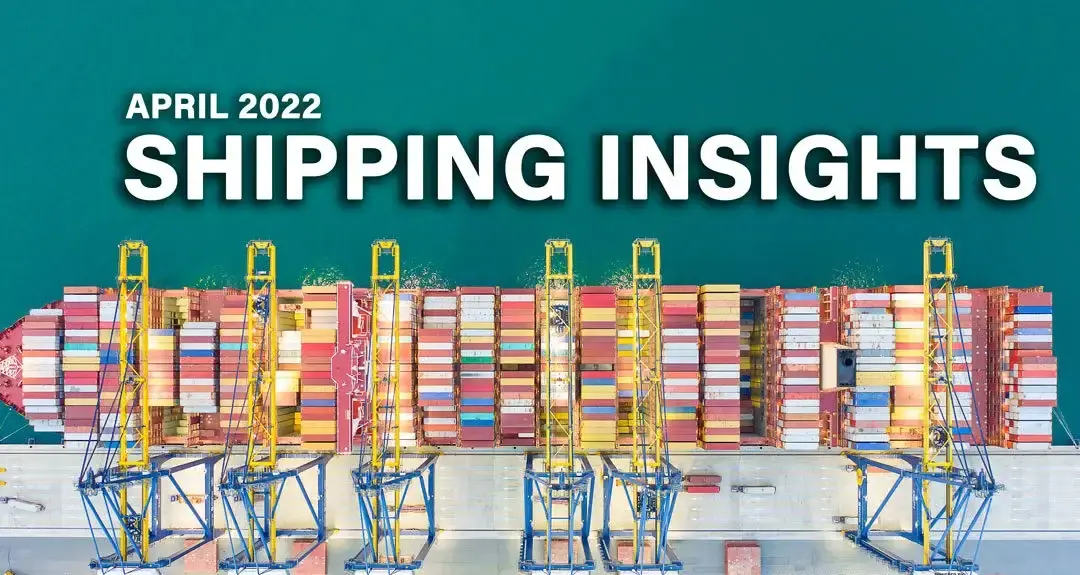
You know how crucial it is to have a dependable freight brokerage partner—but figuring out who to trust? That's the tricky part. A Freight RFP simplifies things by providing a structured way to compare potential providers and ensure they meet your specific requirements.
Let's break down how to create and evaluate RFPs, making your decision process smoother and more effective.
The Importance of a Freight RFP
A Freight RFP, or Request for Proposal, is essentially a formal invitation to freight brokers to bid on your business. It outlines your specific shipping needs, allowing brokers to present their capabilities and pricing. In the context of carrier bidding, it ensures a level playing field where each potential partner understands your requirements.
This process facilitates a structured and transparent selection. Instead of relying on informal quotes or word-of-mouth, an RFP establishes clear criteria for evaluation. This ensures that every proposal is assessed consistently, reducing bias and promoting fairness.
The benefits of utilizing an RFP are numerous.
-
Enables a standardized comparison of potential partners.
-
Ensures clear communication of your requirements, minimizing misunderstandings.
-
Aids in the identification of potential cost savings by encouraging competitive bidding.
-
Mitigates risk by thoroughly evaluating each provider's capabilities and financial stability.
Studies indicate that companies utilizing formal RFPs experience, on average, a 15% improvement in cost savings and a 20% enhancement in service quality. However, reaping and maximizing the benefits of an RFP is only possible if you understand how to properly create and evaluate one–let's dive in.
How to Create a Comprehensive Freight RFP
A well-structured Freight RFP is your foundation for finding the ideal freight brokerage partner. It's more than just a list of requirements; it's a strategic document that sets the stage for a successful partnership. Here's a breakdown of the essential components:
Company Overview
-
Start with a detailed yet concise overview of your company. Include your industry, size, and business goals.
-
Explain your company's shipping patterns, any unique challenges you face, and your long-term logistics objectives.
-
This section helps potential brokers understand your business context and tailor their proposals accordingly.
Scope of Services
-
Clearly define the specific freight services you require, such as LTL, FTL, intermodal, or specialized services like temperature-controlled or hazardous materials transport.
-
Specify any unique handling requirements, such as white-glove delivery or specialized equipment.
-
Providing these details within your RFP ensures that potential brokers can accurately assess their ability to meet your operational demands.
Shipping Volume and Rates
-
Provide detailed data on your shipping volumes, including average monthly or annual shipments.
-
List your common shipping lanes and destinations, including any seasonal fluctuations or peak periods.
-
Include information on the types of commodities you typically ship and their dimensions and weight.
Service Live Expectations
-
Outline your expectations for transit times, on-time delivery rates, and customer service.
-
Specify key performance indicators (KPIs) and service level agreements (SLAs) that you expect from your freight broker.
-
Detail your requirements for communication, reporting, and problem resolution.
Technology and Communication
-
Specify your technology requirements, such as TMS integration, real-time tracking, EDI capabilities, and API integrations.
-
Describe your preferred communication channels and response times.
-
Outline your data security and privacy requirements.
Pricing and Payment Terms
-
Clearly state your preferred pricing structures, such as per-mile rates, flat rates, or volume-based discounts.
-
Specify your payment terms, including invoicing frequency and payment methods.
-
Request detailed breakdowns of all potential fees and surcharges.
RFP Timeline
-
Provide a detailed timeline for the entire RFP process, including deadlines for proposal submissions, Q&A sessions, vendor presentations, and the final selection.
-
This ensures that all potential brokers are aware of the key milestones and can plan accordingly.
By providing comprehensive information in each of these areas, you'll create an RFP that attracts qualified brokers and facilitates a thorough evaluation process. However, the creation of a strong RFP is only the first step. The true value lies not only in the tangible services listed, but also in "services not seen" and the hidden value a provider can offer, such as carrier relationships, industry expertise, and flexible solutions.
To uncover these solutions, you must be able to properly evaluate freight brokerage proposals and make an informed decision.
How to Evaluate Freight Brokerage Proposals
Receiving proposals is just the beginning. Now comes the critical task of evaluating them to pinpoint the best fit for your business. This involves a systematic approach that goes beyond simply comparing prices.
Establish Evaluation Criteria
Before sorting through the proposals, establish clear evaluation criteria. This ensures an objective and consistent assessment process. Consider the following key factors:
-
Pricing: While cost is important, don't solely focus on the lowest bid. Assess the competitiveness and transparency of pricing structures. Keep in mind that freight brokerage pricing is complex, as brokers buy transportation at one rate and sell it for another, not typically using a "cost plus" model. Focus on fair market rates and overall value. Look for detailed breakdowns of fees and potential surcharges.
-
Service capabilities: Carefully evaluate the broker's ability to meet your specific shipping needs. Do they have experience with your industry and commodity types? Do they offer the required services, such as LTL, FTL, intermodal, or specialized transport?
-
Technology and innovation: Consider the broker's technology infrastructure. Do they offer a TMS with real-time tracking and reporting capabilities? Can they integrate with your existing systems? Assess their commitment to innovation and adopting new technologies.
-
Customer service and support: A responsive and reliable broker is crucial. Assess their communication channels, response times, and problem-solving capabilities. Do they offer dedicated account managers and 24/7 support?
-
Financial stability: Choose a partner with a strong financial track record. Review their financial statements and credit ratings to ensure they can weather market fluctuations and fulfill their commitments.
-
Trust and responsiveness: Remember, you're essentially "hiring" a freight broker. Look for a team or individual you trust, who shares your values, and treats your business as a priority. This is as important as price, as the brokerage industry is highly competitive and reputable brokers offer fair market rates.
RFP Evaluation Process
With your criteria defined, follow a structured evaluation process:
-
Initial screening: Review all proposals for completeness and compliance with your RFP requirements. Eliminate any proposals that don't meet your basic criteria.
-
Detailed evaluation: Score each proposal based on your established criteria. Use a weighted scoring system to prioritize the most important factors.
-
Vendor presentations: Invite top-scoring candidates for presentations and Q&A sessions. This allows for a deeper understanding of their capabilities and company culture.
-
Reference checks: Don't just take their word for it. Conduct thorough reference checks with current and past clients to verify their claims and gain insights into their performance.
By following a structured evaluation process, you can confidently select a freight brokerage partner that aligns with your business needs and contributes to your supply chain success.
Making the Final Decision
You've meticulously evaluated proposals, scrutinized pricing structures, and delved into the technological capabilities of each freight broker. Now, the pivotal moment arrives: making the final decision. Think beyond the basic services outlined in the proposals. Factor in the value of strong carrier relationships, industry expertise, and a willingness to provide flexible solutions tailored to your unique needs. These hidden values can significantly impact your overall logistics efficiency and contribute to a long-term, successful partnership.
Ultimately, the best freight brokerage partner is not just the one with the lowest bid or the most impressive technology. It's the partner who demonstrates a deep understanding of your business, a commitment to exceeding expectations, and a genuine desire to contribute to your success. By considering both the tangible and intangible aspects of each proposal, you can confidently select a partner who will elevate your supply chain and drive your business forward.
Streamline Your Path to Freight Brokerage Success
However, we understand that the process can still be time-consuming and complex. That's where Customodal comes in. As a leading freight brokerage provider, we offer a comprehensive suite of services, a vast carrier network, and cutting-edge technology to meet your unique shipping needs. Our team of experts is dedicated to providing personalized solutions and exceptional customer service, ensuring a seamless and efficient logistics experience.
Ready to optimize your supply chain? Contact one of our sales reps today for a free consultation!





